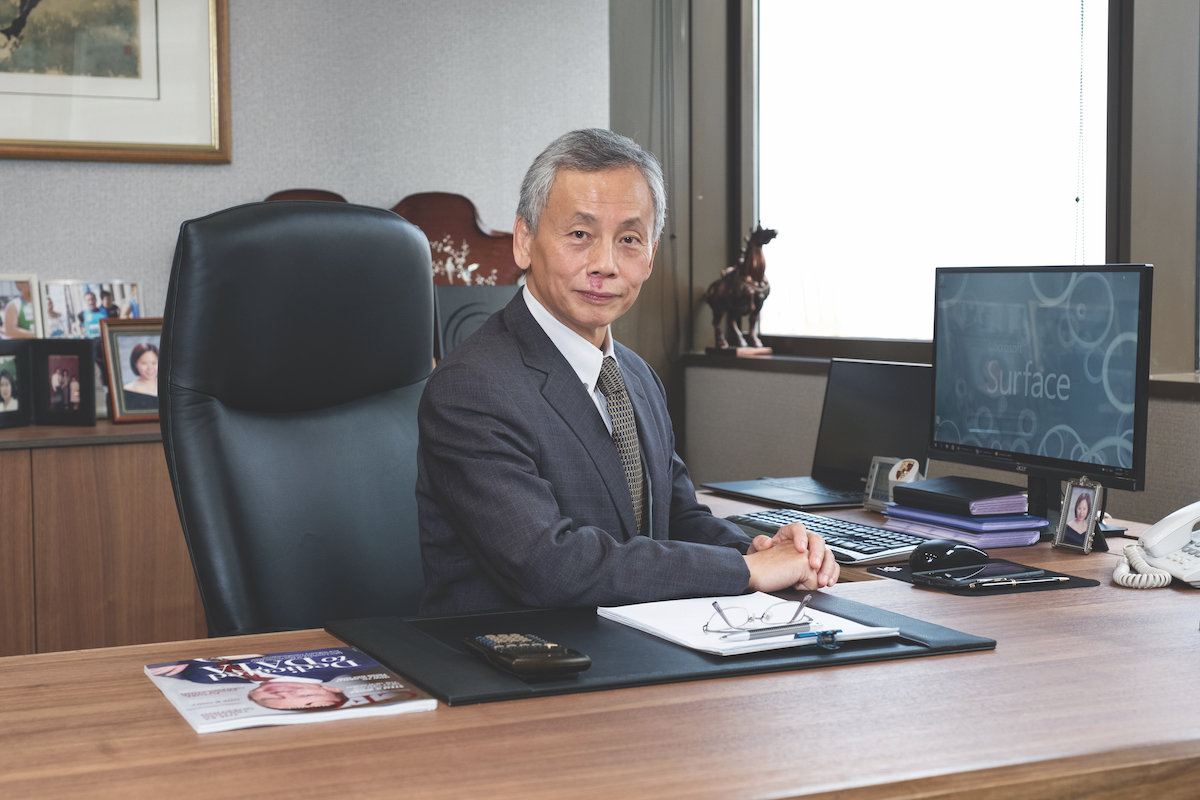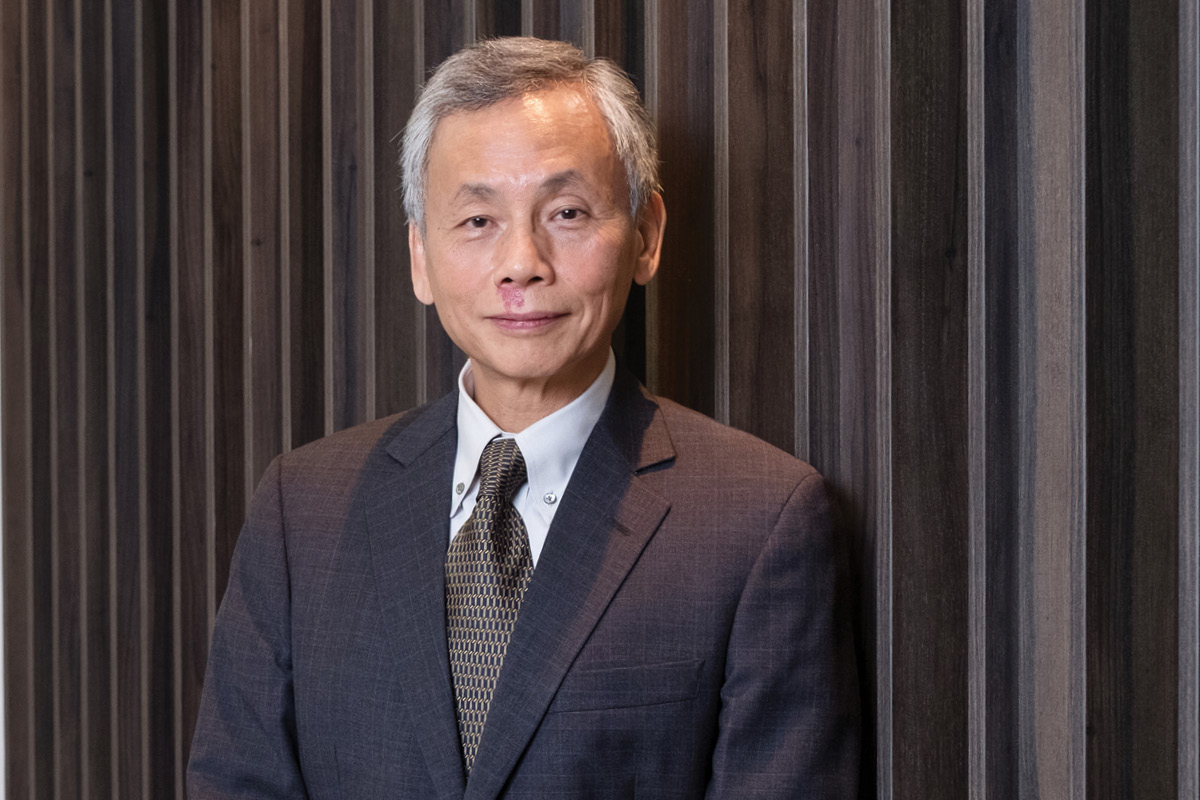Although it bears a close resemblance to the word ‘citrus’, Executive Chairman of Citus Group John Cheng clarifies that the name of the company he founded is not a reference to lemons or oranges. Instead, it was derived from the Latin word citius, which translates to ‘faster’ in English.
Most notably, the word is part of the Olympic motto, ‘Citius, Altius, Fortius’. The pronunciation of citius in Mandarin, John notes, “has the same meaning as it does in Latin”.
John Cheng grows Citus into a global energy trader
While athletes usually plan their Olympic journeys over four-year cycles, John’s Citus journey stretches over 35 years and counting. Before he set up Citus Trading in 1983, John worked for Thai conglomerate Berli Jucker’s Singapore office, overseeing the distribution of renovation products and construction materials from the Siam Cement Group. So, when Citus began as a one-man operation, it was a natural progression to trade in building materials, an industry with which he was familiar. “We started with something a lot easier to handle, very basic.”
Over time, John realised the business cycles of the construction industry were very volatile, so he began looking into trading other commodities with more stability, eventually branching out into bulk materials such as cement, gypsum and coal.
In 2002, John saw an opportunity to diversify the Citus portfolio further, and branched out once again, this time into oil trading. “We started with deliveries of crude oil into the Thai refineries, then bought back the refined products and distributed those to the whole region,” he says. The rest, as they say, is history. The Citus Group of Companies now focuses mainly on trading energy commodities and spans three entities – Citus, Citus Trading and Citus Energy.
Citus Group is fast by name, fast by nature
Reflecting upon Citus’s journey from a small supplier of building materials to the global energy trader it is today, John calls the two industries “two extremes of the business spectrum”.
“With building materials, we are dealing with hundreds of small customers that may not be very strong financially, so we have to offer them credit terms. But when we trade with oil majors, we are actually the smallest guy around. All the big boys we trade with have huge balance sheets and huge resources in terms of credit and all that,” John explains.

We can hit the ground running because we have experts who are actually their own boss but are under the Citus brand.
To survive as a small fish in a very big pond, the company needs to be nimble and constantly on its toes. As a way to be highly flexible and adapt to quickly changing business tides, John believes in maintaining a lean operation with a small permanent headcount. In turn, John has developed a unique business model he calls “expertise outsourcing”.
“We can hit the ground running because we have experts who are actually their own boss but are working with us under the Citus brand,” John explains. “We partner with product experts as projects require. We’ve created a profit-sharing formula with all our expert partners where they provide the know-who and know-how, while Citus manages the risks and is positioned as the final deal decision maker.”
This allows Citus to remain focused on where it can add the most value for its clients. In living up to the ‘citius’ ideal, the organisation can then transition between businesses relatively quickly and seamlessly.
Success built on reputation, trust, & mutually beneficial partnerships
Citus’s ambitions show no signs of abating. John has his sights on moving into the liquefied natural gas (LNG) business, identifying it as the future of clean energy. “Electricity generation around the Asian region will be increasingly converting from coal to LNG. To strengthen our position in the arena, we are exploring investing into LNG receiving infrastructure. We are in the process of readying Citus to be an energy trader of the future, to stay relevant,” he notes.
For John, success boils down to a few ingredients: reputation, trust, and mutually beneficial partnerships. First, he says, it is paramount that the company maintains a spotless reputation in the market, for people to stay confident in engaging in continuing business. Second, the people behind the business need to be trustworthy. A gentleman’s handshake holds as much weight as a contractual agreement; counterparties need to trust that you will do what you say you will do.
Third, the benefits for the business and its business partners must be mutual. It is only through structuring win–win partnerships that will lead to additional opportunities and sustainability.
As the Citus portfolio continues to grow, John is aware of the importance of making sure that he doesn’t fall into the trap of biting off more than he can chew. “We need to have a very focused mindset, so we don’t take on anything we cannot handle. Something that is too big for us may kill us if we make the wrong decision.
“At the same time, we make sure that we are working with good people,” he concludes. “It’s a few very simple principles that we follow, and it works all the time.”



